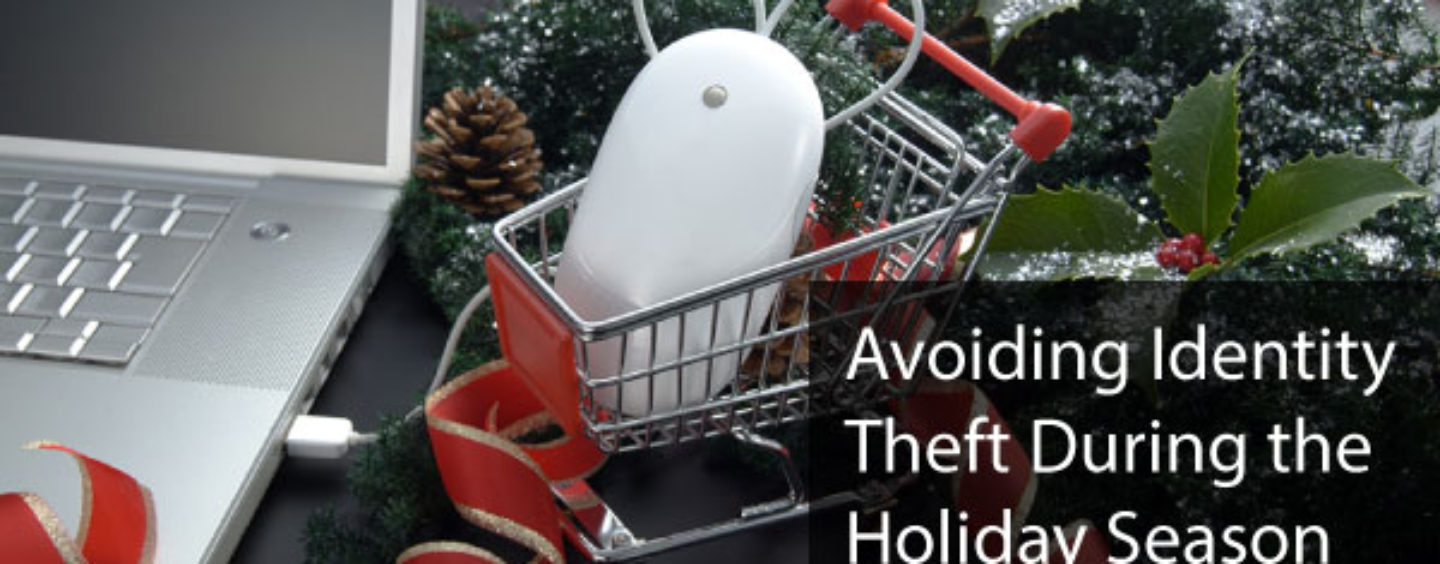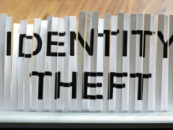The holidays are approaching and the malls are getting packed with shoppers preparing for their upcoming festivities, which is why it’s more important now than ever to protect your money and your identity.
Thieves are prowling for your digits as you make online purchases, connect to your bank over Wi-Fi or share photos over social media.
RELATED: 10 Tips to Help Businesses Stay Secure for the Holidays
“It’s the season to take advantage of people. They’re distracted,” says Jason Glassberg, co-founder of Casaba Security, a firm that advises companies on how to avoid hacking attacks.
He urges people to be more on guard than ever, given the increase in shopping and travel activity that typically accompanies the season.
According to a Bankrate survey of 1,000 Americans in October, most people are very or somewhat scared of identity theft, but many still engage in behavior that leaves their money (and identities) exposed. Some of those behaviors include failing to regularly check their free credit reports, using public Wi-Fi networks for online banking and not shredding financial documents before throwing them away.
“Checking your credit report regularly used to be a pain, but now it’s so easy and there are so many free places you can get it to make sure there are no unauthorized credit accounts,” says Mike Cetera, an analyst for Bankrate and U.S. News My Money blog contributor. In addition to AnnualCreditReport.com, many websites offer free credit reports and scores.
Here are 10 suggestions from security experts on how to keep your money safe this season:
1. Beware of emails that contain links or unsolicited phone calls.
A common tactic thieves use is to send victims an email that appears to be from a legitimate source, like a popular retailer, which contains an altered URL. Anyone who clicks on the link is then sent to a fake site designed to collect personal information, warns Adam Levin, author of the forthcoming book “Swiped: How to Protect Yourself in a World Full of Scammers, Phishers, and Identity Thieves.”
“They might send you a promo email from what looks like Target, and it asks you to enter credit card information. Then, bingo, they’ve just stolen your data,” Levin says. “Or it might say, ‘Do you want to apply for a store card? We have great deals for you,’ and then you apply and don’t realize you just gave away your Social Security number.” Since consumers receive so many promotional emails around the holidays, it’s a particularly vulnerable time. The malicious emails might blend in with the legitimate ones populating your inbox.
If you receive a phone call from a marketer asking for information or someone claiming to be from your bank who wants to check a fraudulent charge, hang up and call the number on the bank of your card, Levin suggests. That way, you can make sure you are speaking to your financial provider and not an impersonator.
2. Shop carefully, especially online.
Whether you’re shopping on your phone, tablet or desktop computer, Levin suggests double-checking that you’re on the correct website or app. “People clone websites,” he notes. Before checking out and entering your credit card information, Levin says you should check that there is a “lock” symbol on the left side of the URL, which confirms it’s a secure site.
3. Review your account statements even more frequently than usual.
While you might typically wait for your monthly credit card statement to comb through charges, Levin suggests reviewing charges more frequently around the holiday season so if you do see anything erroneous, you can report it more quickly. If your card has been compromised, your issuer can shut down your card and send you a new one.
You’ll also want to review small charges carefully, says Joe Loomis, CEO of CyberSponse, a cybersecurity company. That’s because some thieves steal just small amounts at a time – perhaps under $2. “The sheer volume over the course of the credit card’s life adds up,” he says, but consumers might be less likely to notice and report it because they assume it’s a legitimate charge that they forgot about. Thieves might be especially likely to sneak in those small charges around the holidays, when the volume of purchases goes up, he adds.
4. Watch for skimmers.
“Skimming runs rampant during the holidays,” Levin says, so be on the lookout for devices that are attached to card readers or at ATMs. Skimmers copy your card information that thieves steal to replicate your card to make unauthorized purchases. You should also consider bringing only one card with you while you’re shopping and leaving others at home, so if you misplace your wallet, you don’t lose all cards.
5. Use your credit card, not your debit card.
“You don’t want to use your debit card. It pulls the capital directly out of your account,” Loomis says. Credit cards come with more protection, he notes, because card companies will offers consumers full protection from fraudulent charges. Just be sure you report the problem within 90 days, he adds.
6. Be wary of new retail card applications.
Many shoppers are tempted to open new retailer-branded credit cards when they’re making big purchases around the holidays to nab the discount. The problem with this, warns Loomis, is that the application process often involves writing down your personal information, including your Social Security number, on a piece of paper. “If you’re writing it down and giving it to a stranger, that’s kind of crazy. You don’t know where it’s going. Someone could take a picture with a phone or throw it away,” he says. Instead, ask if you can apply online through a secure site.
7. Don’t shop from a coffee shop.
“Don’t make transactions within public Wi-Fi networks,” Glassberg cautions..That’s because a criminal can access the information passed through the network, too, which means your banking information is at risk. “People forget their phones and tablets are just computers, too. You’re no safer using your phone than you are using your laptop if you’re connecting to a wireless network,” he says.
8. Limit your social media sharing.
The security questions on financial accounts often overlap with the information we share on social media, including date of birth, anniversaries, pets’ names and mothers’ maiden names. Glassberg suggests increasing privacy controls on Facebook and other accounts as well as using hard-to-guess passwords.
9. Check the protection that comes with your credit card.
Some credit cards offer additional protections from theft. MasterCard, for example, offers free ID Theft Alerts that let users know if their personal information is being improperly bought or sold online. MasterCard also offers cardholders guidance from experts when an identity theft does occur. “These experts help guide the individual through what can be an overwhelming process, from filing an affidavit and cancelling accounts, to notifying the major credit reporting agencies,” says Carolyn Balfany, senior vice president of U.S. product delivery at MasterCard.
The new chip cards, which credit card companies are now rolling out to consumers, contain embedded computer chips that make it harder for thieves to steal card information. Balfany urges consumers to request a chip card if they haven’t yet received one from their card provider.
10. Monitor or freeze your credit if your data is hacked.
If your data is breached as part of a larger attack on a retailer or company that has your personal details, you’ll want to monitor your credit even more closely going forward. In the case your data or personal information has been stolen, Cetera suggests freezing your credit, which prevents anyone from opening up a new line of credit in your name. While some credit monitoring services offer to do this for you, Cetera says you can also do it yourself by contacting the credit bureaus Equifax, Experian and TransUnion.
Are you a victim of fraud or money scam? Share your story with us on the Money Credit and You Facebook page!
Original article published on US News.






